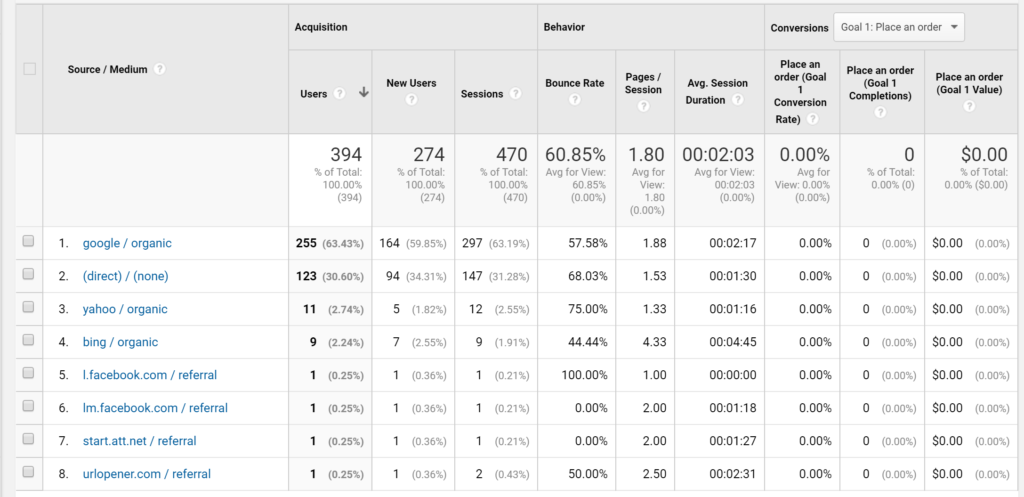Consider this…
Updated May 25, 2022.
So, why do businesses track their finances?
Easy, it’s this annoying thing that you have to do in order to make sure that, if Uncle Sam comes knocking, you can make him go away as fast as possible.
All joking aside, if you’re really utilizing your financial software and reports, it’s undoubtedly a priceless component of your business. From a simple report, you know what’s working, what’s not, where to pivot, and what to continue.
For the same reason, you need to be tracking your website traffic with Web Analytics.
But wait, what is Web Analytics?
For the sake of simplicity, it’s the measurement of data. For our cases, however, we are going to be referring to Google Analytics.
Put it simply, it’s QuickBooks for your website traffic. Except in a way, it’s kind of better because everything is tracked completely automatically. All you need to do is look at the reports.
Here’s an example:

Does this make any sense to you?
If not, that’s okay. Google Analytics pretty much takes the approach of “Collect everything and let the user sort it out”. While this does seem intimidating, all you have to ask is this:
What do I want my users to do?
Once you answer that, we can dive right to where we need to be measuring and start improving your site in ways that truly matter.
Nah, I don’t really need this
Let me ask you this.
You’ve spent thousands on your website, in what way would you rather find out the money is well invested:
- You get a high-level job/client that may or may not say that the reason why the business opened up with you is that your website impressed them
- You’ve been able to hand-pick the reports that are useful to you. Thanks to this, you know that every week on average about nine people call you from your website and that about four on average turn into business.
Worse though, how do you know the website is not working? What if your assumptions about your customers were wrong and you’re turning them away?
Answering these questions are possible thanks to Web Analytics. Once set up, it’s easy. All you need is a clear idea of what you want to happen on your site.
The root of your marketing
There is also another very important use case, and that is you can use it to test your other advertising.
Let’s say that you are approached by your local radio station and they promise to get you 500 hits a day on your website for $5,000, for a 3-month period.
Three months come and pass, and one of two scenarios are possible:
- You don’t track your analytics, so you have no idea if they actually delivered or not
- You do, and you can prove whether or not they delivered
- Note: If they didn’t deliver, you might be able to renegotiate that $5,000
You might also be using Facebook ads. If so, have a couple of pages on your site that can only be accessed through your ads. With Analytics you will know how many people actually respond to the ads, therefore you can reasonably determine your return on investment.
Take Action
The next step, of course, is getting yourself up and running with Web Analytics. It starts with these simple questions:
- What is my website going to do for my business?
- What do I want people to do on my website?
- How am I going to measure that?
For more details on how to take advantage of this, be sure to contact us via phone or feel free to schedule a consultation.



